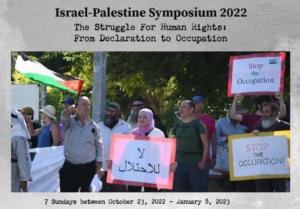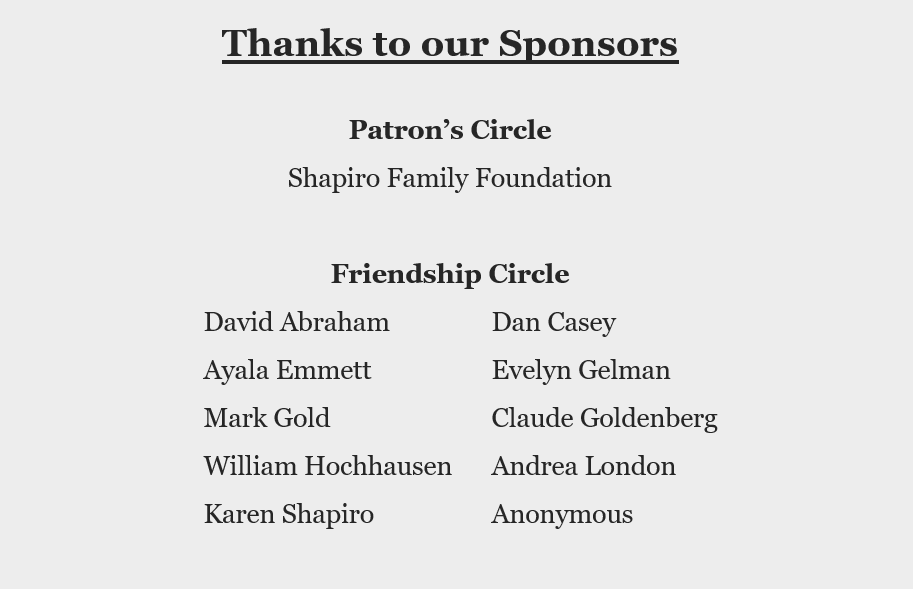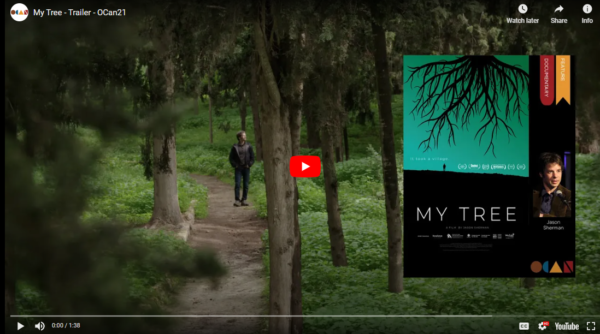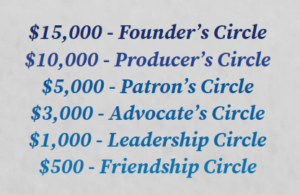
.
![]()
Interact with Israeli & Palestinian NGOs protecting human rights by working to end the occupation.
Meet with Israeli & Palestinian government leaders standing up for human rights.
Explore key issues while Israelis go to the polls on November 1st to elect a new government.
Visit with Israelis and Palestinians whose human dignity has been violated.
Examine the struggle both at home & on the West Bank for Israel
to live up to its commitment to human rights.
Third Virtual Israel-Palestine Virtual Symposium
Partners for Progressive Israel’s third digital symposium took place on seven Sundays from October 23, 2022 through January 8, 2023. As in previous symposia, two two-hour sessions were held on each of the Sundays, with 90 minutes devoted to a panel of speakers engaging in dialogue with participants and the final half-hour dedicated to participants reflecting on what had just transpired. This past year’s symposium, entitled “The Struggle for Human Rights: From Declaration to Occupation,” was primarily attended by an especially spirited group of participants from the US, Canada and the UK who actively engaged in the dialogue. Topics included “Balancing Security with Human Rights”; “Case Studies in the Protection of Human Rights: Women and the LGBTQ+ Community”; “Religion and Human Rights”; “Human Rights Education (Or Miseducation)”; and “Where Do We Go From Here?” Given the fact that the symposium took place at election time in Israel, two sessions were devoted to the results of the election and their effect on human rights. The over 40 panelists who joined us from Israel and Palestine were extraordinary. You can read more here about the symposium and the panelists who participated. Although Partners will continue with a digital format in the future, our hope is that in the fall, 2023 will see a return to a thirty-year tradition of in-person, one-week symposia in Israel and Palestine. Click here if you would like more information once we confirm the dates.
![]()

 .
.
General Information
The Israel-Palestine Symposium will take place via Zoom over twelve, two- hour sessions (from 10:30am – 12:30pm ET & 1:30pm – 3:30pm ET) on seven Sundays:
• October 23 • November 20
• October 30 • December 11
• November 6 • December 18
• November 13
To allow for substantive discussion, each session will be limited to 50 participants and will be divided as follows:
• 45-minute presentations by the invited guest speakers
• 45-minute direct Q&A conversation with the speakers
• 30-minute discussion among Symposium participants
Pre-Symposium Film:
All attendees who register prior will receive a link to watch a pre-Symposium film “My Tree” directed by Canadian playwright and screenwriter Jason Sherman between Friday 14th – Wednesday, October 19th. It was nominated for best feature length documentary at this year’s Canadian Screen Awards. There will be a follow-up Zoom interview with Sherman to discuss his work. Click below to watch the trailer.
Post-Symposium Film: To be announced.
Registration and Sponsorship
Space is limited to 50 participants per session. We recommend signing up early to secure your spot!
Symposium Registration Fee: (14 sessions and pre-and-post-symposium films)
REGISTERATION CLOSED
Sponsorship Information
The cost to host the 2022 Israel-Palestine Symposium is greater than these fees will cover. Support this important and timely program by becoming a Sponsor today. As a Sponsor, you can attend all 14 Symposium sessions, plus access links (for a limited time. You will also be acknowledged at each session, in our promotional materials, e-blasts, social media and on our website!
BECOME A SPONSOR NOW – CLOSED
PROGRAM
Sunday, October 23, 2022
CURRENT HUMAN RIGHTS ISSUES IN ISRAEL & THE OCCUPIED TERRITORIES
Both sessions will take place against the background of promises made, but violated, in Israel’s Declaration of Independence. Where might hope reside for the repair of human rights?
ABUSE OF HUMAN RIGHTS WITHIN ISRAEL PROPER
We will visit with key members of the Jewish and Palestinian human rights community within Israel’s borders. Advocates for human rights from both political and civil society leadership will address such issues as the many forms of discrimination against Palestinians with Israeli citizenship and the unequal treatment of Ethiopian Jews.
Panelists
Einat Ovadia,Executive Director, ZULAT
Mohammad Darawshe, Director of Strategy, Givat Haviva
Laura Wharton, Member, City Council, Jerusalem
Gili Getz (Moderator), Board Member, Partners for Progressive Israel
Session #2: 1:30 pm – 3:30 pm ET
HUMAN RIGHTS VIOLATIONS IN THE OCCUPIED WEST BANK, EAST JERUSALEM, & GAZA
Human rights activists and political leaders will address such issues as the separate legal systems for residents of the West Bank; evictions of Palestinians in Sheikh Jarrah, Masafer Yatta, and elsewhere on the West Bank; travel restrictions on the citizens of Gaza; settler violence; the denial of naturalization to Palestinians from the Occupied Territories married to Israeli citizens; and the outlawing of non-violent Palestinian rights organizations.
Panelists
Eid Suleman, Peace Activist, South Hebron Hills
Dor Chavoinik,International Department Coordinator, Gisha
Gili Getz (Moderator), Board Member, Partners for Progressive Israel.
![]()
Sunday, October 30, 2022
Israel faces genuine threats to its security, but widely different meanings of the word “security” are understood by Israelis and Palestinians. How are human rights violated in security’s name? Could a peace accord provide genuine security for both peoples?
Session #3: 10:30 am – 12:30 pm ET
SECURITY: WHEN LEGITIMATE AND WHEN A PRETEXT FOR ABUSING HUMAN RIGHTS?
Israel’s legitimacy as a democracy rests on preserving the often-fragile equilibrium between protecting the state and safeguarding the human rights promised in its founding document. Security experts and human rights workers will address aspects of this delicate balance. Issues to be discussed may include security for Palestinians, administrative detention, extra-judicial killings, blockading Gaza, and collective punishment.
Panelists
Shlomo Brom, Institute for National Security Studies
Tuly Flint, Combatants for Peace
Nimala Kharoufeh, Combatants for Peace
Lenny Grob (Moderator), Partners for Progressive Israel
Session #4: 1:30 pm – 3:30 pm ET
WOULD GENUINE SECURITY FOR ISRAEL LIE IN A JUST PEACE WITH ITS PALESTINIAN NEIGHBORS?
In this session, representatives of human rights NGOs and authorities on security matters will be asked to assess the claims made by some political leaders that survival in the Middle East rests only on military might. Although no one disagrees that Israel must possess the means to defend itself, could agreements between Israel, Palestine, and their neighbors realistically provide the only permanent security?
Panelists
Avshalom Vilan, Veteran, Elite IDF Unit, Peace Activist
Galia Golan, Combatants for Peace
Mauricio Lapchik, Peace Now
Lenny Grob (Moderator), Partners for Progressive Israel
Sunday, November 6, 2022
ANALYZING THE NOVEMBER 1ST ELECTION RESULTS
November 1st is the occasion of Israel’s fifth election in the past four years. Although coalition deliberations are only now beginning, political leaders will discuss what the results portend for a future government.
Session #5 10:30 am – 12:30 pm ET
CIVIL SOCIETY MEMBERS ASSESS THE ELECTION RESULTS
NGO leaders and other experts in the arts and science of politics will consider Israel’s election results with an eye toward what these results might mean for the future of human rights in Israel and the Occupied Territories. Potential alignments of parties will also be discussed.
Panelists
Alone Lee Green, Standing Together
Sally Abed, Standing Together
Arik Ascherman, Torat Tzedek (Torah of Justice)
Lenny Grob and Karen Shapiro (Co-Moderators), Partners for Progressive Israel
Session #6: 1:30 pm – 3:30 pm ET
POLITICIANS ASSESS THE ELECTION RESULTS
Members of the Knesset and other political leaders will examine the election outcomes and explore possible coalition configurations. They will discuss what the election results portend for the protection of human rights in Israel and the Occupied Territories.
Panelists
Mossi Raz, Meretz
Lenny Grob and Karen Shapiro (Co-Moderators), Partners for Progressive Israel
![]()
Sunday, November 13, 2022
CASESTUDIES IN THE PROTECTION OF HUMAN RIGHTS: WOMEN AND THE LGBTQ+ COMMUNITY
Although human rights abuses exist in numerous settings in Israel and the Occupied Territories, speakers in these sessions will address gender and LBGTQ+bias as two prominent instances of discrimination that contradict promises of equality made in Israel’s Declaration of Independence.
Session #7: 10:30 am – 12:30 pm ET
GENDER BIAS IN ISRAEL – AND WOMEN AS A FORCE FOR CHANGE
Although the 1951 Women’s Rights Law was passed by Israel’s first Knesset, a 2021 study informs us that Israel ranks 30th in gender equality among 100 countries. Political leaders and representatives of women’s rights organizations will share their thoughts about gender inequality in Israel and the current, multi-pronged struggle to overcome it. Among the issues to be discussed are gender-based violence; unfair treatment of women in the workplace; gender segregation; under-representation in legislative bodies; inequality in family law and concern of violence against women in the Israeli Palestinian community. We will hear about increasingly strong advocacy for the empowerment of women in the face of these inequities.
Orit Sulitzeanu, Executive Director, The Association of Rape Crisis Centers in Israel
Gili Bason, Transgender Activist, LGBTQ+ Center
Samah Salaime, Executive Director, Na’am-Arabi Women in the Center
Sapir Sluzker Amran, Co-Founder, Breaking Walls
Karen Shapiro and Ben Sharif (Co-Moderators), Partners for Progressive Israel
Session #8: 1:30 pm – 3:30 pm ET
DISCRIMINATION AGAINST THE LGBTQ+ COMMUNITY IN ISRAEL
Israel’s LGBTQ+ community—relatively well-protected in comparison to other states in the region and in other parts of the world—still faces substantial human and civil rights challenges at home. Last year, the Association of the Movement for Equality recorded more than 2900 cases of discrimination against the LGBTQ+ community, a 10 percent increase over 2020. Members of the community who are Palestinian citizens of Israel suffer disproportionately. Issues to be discussed include violence against the LGBTQ+ community and discrimination in the workplace and in some religious rituals.
Chen Arieli, Deputy Mayor, Tel Aviv-Yafo
Muhammad Zoabi, Arab LGBTQ+ Activist
Netanel Shaler, Director General, Havruta-Religious Homosexuals
Karen Shapiro and Ben Sharif (Co-Moderators), Partners for Progressive Israel
Sunday, November 20, 2022
Teachings in our religious traditions can serve to strengthen or to weaken human rights. This session will examine some instances of how Judaism, Christianity, and Islam have influenced what we now refer to as human rights and how these traditions might play a positive role today.
Session #9: 10:30 am – 12:30 pm ET
POSITIVE & NEGATIVE INFLUENCES OF RELIGION ON HUMAN RIGHTS
We will explore some ways in which Judaism, Christianity, and Islam have supported or failed to support human rights in Israel. With regard to Judaism, of special interest will be the relationship of the Orthodox Israeli rabbinate to the Conservative and Reform movements within Israel; Shabbat observance/restrictions as well as civil marriage/divorce will be discussed as well. Regarding Islam and Christianity, speakers will address ways these traditions have furthered–or impeded–human rights in their respective communities both in Israel and Palestine.
Rabbi Galia Sadan, Congregation Beit-Daniel, Tel Aviv
John Munayer, Director International Engagement, Rossing Center
Uri Regev, President & CEO, Hiddush – For Freedom of Religion and Equality
Rabbi Andrea London (Moderator), Partners for Progressive Israel
Session #10: 1:30 pm – 3:30 pm ET
WELCOMING–OR REJECTING–THE NON-JEWISH “OTHER”
The command to “welcome the stranger” is articulated no fewer than 36 times in the Torah. How does Israel’s treatment of non-Jews, whether immigrants or asylum seekers, square with this injunction to welcome the Other? Who, indeed, is the “stranger”? Speakers will discuss concerns surrounding calls for “Jewish supremacy,” as well as issues pertinent to the Law of Return and to the conduct of Israel toward both foreign workers and asylum seekers from Sudan and Eritrea.
Elliot Vaisrub Glassenberg, Sr. Educator, BINA: The Jewish Movement for Social Change
Monim Haroon, Sudanese Refugee
Signal Rozen, Public Policy Coordinator, The Hotline for Refugees and Migrants
Rabbi Andrea London (Moderator), Partners for Progressive Israel
![]()
Sunday, December 18, 2022
HUMAN RIGHTS ISSUES
FIRST SESSION: Now that it looks like the government that will be formed is more extreme right than ever before, what will happen to human rights issues? Who will speak up and fill the void of the Israel-Left? SECOND SESSION: How can artists through their craft can fight for human rights?
Session #11: 10:30 am – 12:30 pm ET
THE FUTURE OF ISRAEL’S LEFT
This session will take stock of post-election deliberations regarding the future of the voice of Israel’s left. Now that Meretz is no longer in the Knesset– and may well not continue to exist as “Meretz”– what is the political future for proponents of human rights and a just peace with Palestinians? Who will fill a void left by Meretz’s disappearance?
Leah Shakdiel, Israel Peace Activist and Feminist Scholar
Moataz Samara, Meretz Activist
Lenny Grob and Karen Shapiro (Co-Moderators), Partners for Progressive Israel
Session #12: 1:30 pm – 3:30 pm ET
HOW MIGHT THE ARTS EDUCATE FOR HUMAN RIGHTS?
Speakers from a variety of artistic forms—among them perhaps film, literature, music, and dance—will discuss how their specialties might be used to promote human rights in both Israel and Palestine. How does arts education differ from more traditional ways in which students have been taught about human rights? Among issues to be discussed is a current movement of 140 Israeli filmmakers refusing to take money from a fund that attempts to normalize the occupation.
Einat Waitzman, Actor, Theater Director, and a Playwright. Tel Aviv
Sara Benninga, Artist
Lenny Grob and Karen Shapiro (Co-Moderators), Partners for Progressive Israel
Sunday, January 8, 2022
HUMAN RIGHTS EDUCATION (OR MISEDUCATION) AND
WHERE DO WE GO FROM HERE?
Session #13: 10:30 am – 12:30 pm ET
TEACHING HUMAN RIGHTS IN ISRAELI & PALESTINIAN CLASSROOMS
Speakers will explore with us how human rights are taught (or mistaught or neglected) in both Israeli and Palestinian classrooms. What are good (and bad) pedagogies for human rights education? Among the issues to be discussed are accusations of bias in both Palestinian and Israeli textbooks, as well as in respective teaching practices. How, for example, are maps used to support or undermine human rights? How do Israeli Jewish schools promote or impede the study of Arabic?
We will discuss ways to maintain our support of those in the region working for the protection of human rights and a just peace between Israel and Palestine. We see this not as the end of our 14-session Symposium, but rather the beginning of a planning process in which what we have learned can be realized in action. In this sense, the Symposium continues. We will explore in depth how we in the Diaspora can continue to work in concrete ways in support of these goals.
Amnon Be’eri-Sulitzeanu, Co-Executive Director, Abraham Initiatives
Dr. Soli Vered, Training and Human Rights Education Coordinator, ACRI
Sam Fleischacker (Moderator), Partners for Progressive Israel
Session #14: 1:30 pm – 3:30 pm ET
CONTINUING THE WORK OF THE SYMPOSIUM IN A TIME OF DESPAIR
In the face of dire threats to human rights in Israel under a Netanyahu/Ben-Gvir government, despair rears its ugly head. At this critical juncture those of us in the diaspora who advocate for human rights in Israel must find ways to continue to support the Israeli-Left. But how do we move forward when such despair inevitably extends to us in a multiple of ways? How do Israelis and Palestinians believe we can support them? How do we take all that we’ve heard in the Symposium, counter despair and continue its work? This session will consist of three parts:
- We will first hear from Ayman Odeh, head of the Hadash party and leader of the Hadash-Ta’al list that ran jointly in the recent Knesset election. He will speak both about plans to move forward in the face of the most right-wing government in Israel’s history and about his ideas of how we can support the preservation of human rights.
- Tuly Flint (Israeli Board Chair) and Osama Eliwat (Palestinian Board Spokesman) of Combatants for Peace will discuss how they are fighting despair with creative actions on the ground. What might we in the diaspora learn from their efforts?
- We will then inquire how each of us participants in the Symposium can begin to take some specific action—small as it may seem to be—to work toward supporting a much-needed healing of injustices in Israel and Palestine. We will also ask for specific suggestions as to how Partners might strengthen its mission to support Israelis working to ensure social justice, civil rights, and equality of all of Israel’s inhabitants.


